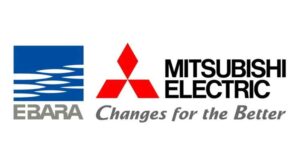ASERCOM: “a time without precedence”
8th October 2017FRANCE: Manufacturers group ASERCOM has described European F-gas compliance as a time without precedence for the industry.
When choosing the type of refrigerant, ASERCOM, the Association of European Refrigeration Component Manufacturers, urges the industry to select the solution with the smallest possible GWP, but warns that it is important to take into consideration flammability and related safety measures, temperature glide, discharge temperature and refrigerating capacity.
“The entire industry will have to be creative to adapt its current technologies to meet this very ambitious target. It poses a challenge to most of our current products that will be upgraded to cope with the alternative refrigerants,” the statement says.
It also warns against a multitude of alternative refrigerants, saying: “It is clear that too much proliferation of alternative refrigerants delays market adaptation and can also not be handled in practice by contractors and installers, let alone inflating the amount of training even further.”
And training is seen as key, with ASERCOM urging all market players to strive for a fast approach to flammable refrigerant training. “New installations designed according to EN 378:2016 and performed by qualified technicians will be safe,” it says, but adds “meanwhile, it can still be preferable for new installations to use non-flammable refrigerants.”
Compressor test data has revealed that R404A alternatives show higher compressor discharge temperatures. “They also have a significant temperature glide, so systems must be designed accordingly,” ASERCOM says.
R134a replacements options, like R1234yf and R1234ze, exhibit a loss of refrigerating capacity versus the baseline for some refrigerants.
“The HVACR industry faces significant product and technology changes,” the ASERCOM statement concludes. “Most of our current products have to be qualified or redesigned to meet the very ambitious targets of the F-gas regulation. This is a time and lab capacity consuming process without precedence in the industry. The flammability of the alternative refrigerants changes the landscape to a much larger extent than the change from CFCs to HFCs ever did.
“First and foremost the knowledge barrier must be overcome by training involved stakeholders, mainly servicing, repairing and maintenance staff, to ensure a timely roll-out when working with alternative refrigerants.”
The Declaration is available in English, German, French and Italian.








